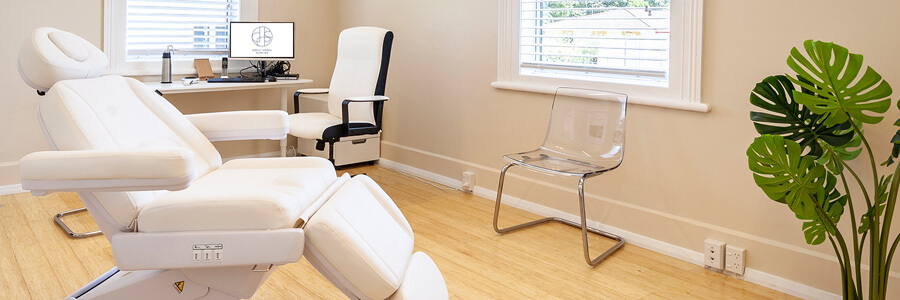
Heading in for a cosmetic treatment but don’t know what to expect? Fret not, we are here to help you tackle the unknown with #ProTips.
Of course, your doctor is going to give you the low-down on how best to prepare for your cosmetic treatment at the consultation. And we bet you’ve done your research on what to expect post-procedure, too. But there are still a few things that may catch you by surprise when you arrive at the clinic on treatment day.
Most people are nervous and exiting when treatment day arrives, but cosmetic treatments are also often associated with increased stress and anxiety too. This is perfectly normal, so do not let that stop you from changing something you are not happy about in relation to your appearance and confidence. In fact, studies shows that a bit more information and education about what to expect reduces anxiety significantly in the majority of the cases.
The bottom line? The more you know about what to expect at the clinic, the better equipped you are to deal with it. Here are 5 things that might help you to tackle the unknowns, so you can ace your cosmetic procedure like a pro:
1. There may be music — and essential oils
Multiple studies in the past have shown that the music helps both patients and doctors relax before a cosmetic procedure. Therefore, you might experience that the clinic plays music in the clinic room. Always remember that it’s okay to ask if the music can be turned off, while during the treatment.
Much like music, essential oils are another favored practice for keeping patients calm. According to a recent study published in Laryngoscope Investig Otolaryngol, aromatherapy helps combat treatment anxiety. The essentials oils has a soothing and comfortable effect, which makes it ideal to use at the clinic during the treatment. Just ensure that you pick a natural, plant-based essential oil that is hypoallergenic and has a calming effect.
2. Don't fear the pain
You might experience a slight discomfort during the injection of fillers, but the pain level associated with the injection is very individual depending on the individual’s pain threshold. Fret not, many clinics use an aesthetic cream before treatment to minimize the discomfort. Furthermore, many of the dermal fillers contain a local anaesthetic, normally the anesthetic called Lidocaine, in order to provide further relief and alleviate as much pain as possible.
3. Stay away from herbal remedies and high heat
Most patients know that alcohol and caffeine should be avoided before and after a treatment, but even some natural alternatives (like ginseng, fish oil, vitamin E and gingko Biloba) may be off-limits as well, in order to avoid excessive bleeding or bruising.
Furthermore, you should be careful about the sun and the use of solarium since high heat can help the filler disappear faster than it would otherwise.
4. Be aware of side effects
If you notice your face or lips starts to swell after an injectable filler treatment, then be aware that this is totally ok. Most of the dermal fillers consists of Hyaluronic acid, which is a natural substance in the body. However, Hyaluronic acid is a gel that can attract and hold water, which causes swelling for some days after the treatment.
There are many different dermal fillers but some of the most common dermal fillers including hyaluronic acid is e.g. Juvéderm®, Revolax®, Belotero® or Restylane®.
In addition, it is completely normal to experience a little bit of discomfort, redness and bruising after the treatment. This will decrease after some time.
5. Prepare for any allergies
Your doctor will ask you about any kind of allergy to make sure that everything goes smoothly on the day of the treatment, but, as a patient, it’s also your job to help them cover all the bases.
Make sure you ask for a list of any medications they may be using and check that against any other medications you’re currently taking to ensure they can be used together. Also, ask your doctor for recommendations on how to combat allergies should they suddenly occur post-procedure. If you experience any allergic reaction after the treatment, immediately reach out to your doctor, so he or she can prescribe medication or offer alternatives to combat the allergy.
Some patients, meanwhile, can be moderately to severely allergic to latex products, which manifests as lip or tongue swelling, rashes, or unusual sensitivity. In this situation, doctors can use non-latex products during the procedure.
By Sholeen Damarwala - AEDIT aesthetics edit | October 2019
Please share with: ![]() Linkedin.com
Linkedin.com ![]() Reddit.com
Reddit.com

